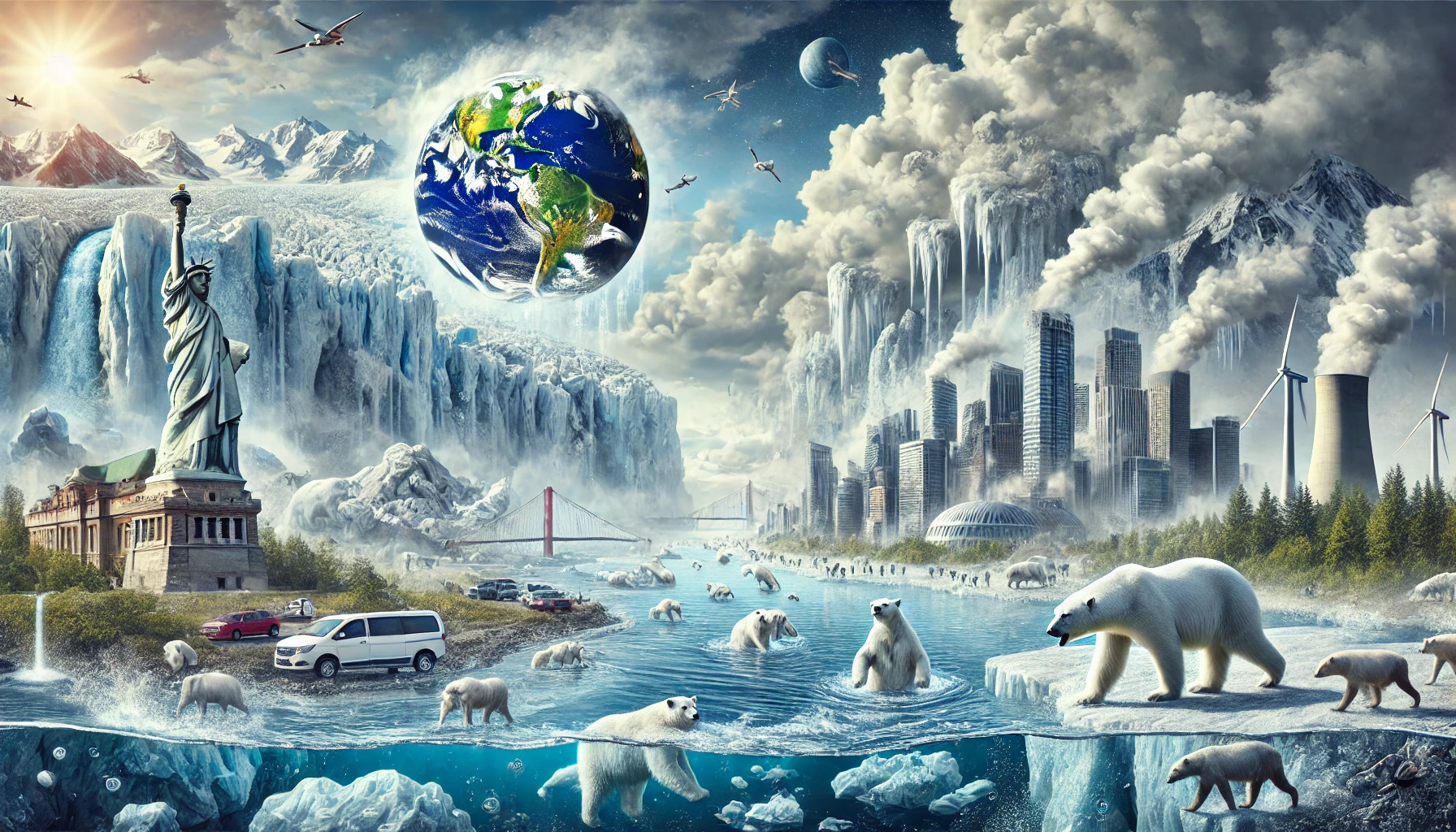What will happen if the ice caps melt?
Article Source: ScienceDirect

Why you should care
The melting of ice caps is more than just an environmental issue—it’s a global crisis in the making. Rising sea levels, extreme weather, and loss of biodiversity are just the tip of the iceberg. Understanding the consequences helps us realize the urgency of taking action to preserve the planet’s fragile ecosystems and protect communities worldwide.
Answering the question… What will happen if the ice caps melt?
If the ice caps melt entirely, sea levels could rise by up to 70 meters, threatening cities like New York, London, and Shanghai. Over 680 million people living in coastal areas are at immediate risk. Melting ice also disrupts ocean currents, intensifies hurricanes, and threatens the survival of species like polar bears. Furthermore, it accelerates global warming by reducing the Earth's ability to reflect sunlight.
How was the study done?
Researchers analyzed satellite data, climate models, and historical ice core samples to predict the pace of ice cap melting and its impacts. The study also used simulation models to forecast the global effects of rising temperatures on sea levels, weather patterns, and ecosystems.
What was discovered?
- Rising Sea Levels: Complete melting of polar ice caps would increase sea levels by 70 meters, submerging coastal cities.
- Climate Change Acceleration: Loss of ice reduces the planet’s reflectivity, causing a positive feedback loop that further warms the Earth.
- Biodiversity Loss: Species dependent on polar habitats, like polar bears and seals, face extinction as their environment disappears.
- Ocean Disruption: Melting freshwater disrupts ocean currents like the Gulf Stream, potentially altering global climate systems and causing extreme weather.
- Human Impact: Over 2 billion people may face displacement or food and water shortages due to climate changes caused by ice cap melting.
- Methane Release: Thawing permafrost could release 1,400 gigatons of methane, a potent greenhouse gas, further exacerbating climate change.
Why does it matter?
The melting of ice caps is a global issue with catastrophic consequences. It impacts ecosystems, weather, and human livelihoods, underscoring the need for urgent climate action. Reducing carbon emissions, investing in renewable energy, and preserving polar regions are vital steps to mitigate these effects and ensure a sustainable future.
Read more here.
